25 books to convince you about nonfiction
“Truth is stranger than fiction,” okay, so read some truth
If fiction is the umbrella term in which all untrue, imaginative stories live, nonfiction acts as the same for the true ones. So why does it get a bad rap?
I think, in part, it stems from the preconceptions about what nonfiction is and who reads it. Back when I worked in a bookstore, the nonfiction readers really boiled down to three categories: the older gentlemen reminiscent of my own grandfather who came in for dense history books for leisure and/or as bricks to build a house, the middle aged town mothers who came in to buy Prince Harry’s autobiography, and the young men who came in to scare me and buy things like Can’t Hurt Me or The 48 Laws of Power.
All legitimate crowds, for sure, but they’re not capturing the breadth, insight, and diversity of nonfiction in the last five years, let alone nonfiction in the hundred years prior. Nonfiction writers are publishing with every ounce of creativity their fiction counterparts are, yet for every five fiction books that go viral or get lauded, it’s a miracle if just one nonfiction title receives the same adulation.
Breaking this pattern are the tremendously written memoirs that have had something of a resurgence in the 21st century: Crying in H Mart, Educated, and one on this very list, Know My Name. Most often these are sensitive, personal stories that understandably pull a reader in, and their first-person narration make them a great transition for those looking to branch out from fiction.
If this is your starting point, great! If nonfiction scares you entirely, even better! Allow me to share some ideas to convert you. On the list below are books of history, science, pop culture, memoir, and beyond. They range in place from Eve and Joan’s twentieth-century Los Angeles, to the 1893 World’s Fair, to modern Japan and back again.
One last note before diving in; after compiling this list, I see that some of the reads I recommend here could be seen as emotionally taxing and challenging. These books, as works of nonfiction, deal with the darkest parts of our cultures, our histories, and our very human nature. Some of them include a great deal of pain. I would ask you not to shy away from these books, these stories, for that reason; in fact, it is for that very reason that nonfiction such as these titles below are so essential in our modern day-to-day reading. It takes courage to write, to pursue truth, and to share with the world—I urge you to read with an open heart.
If you want to keep up with what I’m reading, follow me on Goodreads @elleseule
Here are 25 books to make you fall in love with nonfiction (hopefully):
1. Say Nothing: A True Story of Murder and Memory in Northern Ireland by Patrick Radden Keefe
One of the very best books I have ever read begins with Jean McConville, mother of 10, being disappeared by the IRA; it then spirals out from this devastating inflection point. This book reads like a thriller, and I recommend it to anyone interested in mayhem, murder, and mystery of the fictional variety. Beyond this, the detailed history of the brutality of the Troubles, the IRA, and all those involved with both is utterly compelling.
2. Underland: A Deep Time Journey by Robert Macfarlane
In another life, Robert Mcfarlane is not a science writer, but a poet. Underland toes this line, spanning biology, geology, history, climate, myth, and more, all centered on the world beneath our feet and how it moves through time. I can truly say no other book has so whisked me away or transformed my perspective.
3. Midnight in the Garden of Good and Evil by John Berendt
In this classic that edges towards Southern Gothic, Berendt takes his time building out his bizarre cast of characters. The slow creep of Savannah and the sinister stories lying beneath its surface are punctured when a murder takes place; as readers, we lurk alongside our narrator, absorbed into this sordid, spooky, heated world down south.
4. The Sixth Extinction: An Unnatural History by Elizabeth Kolbert
Winner of the Pulitzer Prize for General Nonfiction in 2015, The Sixth Extinction was my favorite book I read last year. Chapters each tackle a different disappearance across the globe whether plant, animal, or quasi-man. It is a book designed, in many ways, to break your heart by forcing you to consider everything we’ve lost thus far on this planet, and what we stand to further lose.
5. So You’ve Been Publicly Shamed by Jon Ronson
Within the current landscape of cancel culture and public shaming, there nestles this strange little book that examines the aftermath of “victims” of such online vigilante justice. Ronson explores how our society has evolved from hurling vegetables in the square to consequences online, and the impact it may very well have on us all.
6. Killers of the Flower Moon: The Osage Murders and the Birth of the FBI by David Grann
Adapted (badly) for screen last year, the book is so much better. The painful history here is recounted with sensitivity, but Grann’s storytelling grips the reader all the way through as details and reveals unfold as if plotted. A story of greed, theft, evil, and entitlement set against the backdrop of the “Wild West” that will leave any American questioning their own identity.
7. Know My Name by Chanel Miller
I find this book extremely difficult to speak or write about, because it is one of those books that should truly be given its own stage, voice, and time. It is a difficult read, because in many ways it is a horrifying world we live in as women; nevertheless, it uplifts, interrupts, and inspires. I consider this mandatory reading.
8. Black Box by Shiori Itō
The fact this book only has 374 reviews on Goodreads breaks my heart despite Shiori Itō’s documentary investigating the sexual violence she experienced being nominated for an Academy Award this year. In many ways, Itō’s story can be read alongside Miller’s, but as an American, it provided me a unique insight into how a very different part of the world (Japan) similarly and differently reckons with sexual violence against women and the silences society encourages.
9. We Carry Their Bones: The Search for Justice at the Dozier School for Boys by Erin Kimmerle
For those familiar with Colson Whitehead’s Pulitzer Prize-winning Nickel Boys, Kimmerle details the appalling truth of the Dozier Boys School on which it is based. It is a difficult story to read, one of devastating abuse and longstanding pain, but Kimmerle brings deep, moving empathy to the clay soil and the secrets she uncovers as she fights for the stories of these young men, particularly Black young men, to be heard.
10. Slow Days, Fast Company: The World, the Flesh, and L.A. by Eve Babitz
They say there are Joan girls and Eve girls, and I say why not be both. Yet I think Slow Days, Fast Company is one of the best windows into life you could possibly read. This book is steeped in the sensuous heat of Los Angeles, where the essays detail Babitz’s life as an almost it-girl and definite party girl, circling the Hollywood and magic of it all with a keen eye.
11. Notes from No Man’s Land by Eula Biss
A tightly composed collection of essays examining race and its complications in America. There is something distinctly post 9/11 about these musings, and as an American myself, I can almost sense they have been written in its challenging aftermath. Some of the essays are better than others, and some are more complicated than others.
12. South to America: A Journey Below the Mason Dixon to Understand the Soul of a Nation by Imani Perry
A National Book Award winner, locations across the southern United States act as a mood board through which Perry discusses race, history, social sciences, literary studies, identity studies, pop culture, and more. All these disparate parts melt together to try to do a very challenging thing: pinpoint that enigmatic identity the American South possesses.
13. First Friends: The Powerful, Unsung (And Unelected) People Who Shaped Our Presidents by Gary Ginsberg
Most Americans have learned about their presidents until they’re blue in the face, yet this book offers a refreshing new take on the world’s least desirable job. Friendship is a powerful influencer, and by examining the loved ones and inner circles of past presidents, interesting and saucy conclusions about history may be found.
14. The Devil in the White City: Murder, Magic, and Madness at the Fair That Changed America by Erik Larson
By far one of the famous titles recommended on this list, I find it to be deservedly famous for its readability and story-like quality. It is a story of light and dark, of good and evil, against a backdrop of one of the most famous events in history: the 1893 Chicago World’s Fair.
15. Why They Marched: Untold Stories of the Women Who Fought for the Right to Vote by Susan Ware
As someone who has tried her best to study alternative histories, the story of the suffragettes both in America and the United Kingdom are dangerously straight and white. Ware eloquently illustrates the diversity of the suffrage movement through vignette-like chapters; the women she describes are entirely more charming and forceful than you might imagine.
16. The Immortal Life of Henrietta Lacks by Rebecca Sklott
There is a fair chance this may have been required reading at some point or other in your life, but if you didn’t give it a chance then, I’d urge you to give it one now. A former resident of Baltimore, this book hits particularly hard, but the story of the Lacks family against the grain of a billion-dollar research industry is deeply, difficultly, potent.
17. In Cold Blood by Truman Capote
A rightful titan of the genre, Capote urges readers to stare down at the darkness that fuels our fears. He attempts to bend readers and very reality to his will to construct a more humanizing view of those who commit a despicable crime. To do so catches readers in a web; it is an uncomfortable, dismally unpleasant, and even immoral thing to read, but an education in American violence.
18. Between the World and Me by Ta-Nehisi Coates
This work takes structural and thematic inspiration from the work of James Baldwin, and its echoes are heard across the pages, yet Coates writes with a distinctly twenty-first century harshness. Framed as a letter to his young son, there are no easy answers, let alone answers at all. Yet for this reason, among many others, it is a classic in the making.
19. Braiding Sweetgrass by Robin Wall Kimmerer
Robin Wall Kimmerer is both a scientist and a writer, both of which are compounded by her identity as a member of the Potawatomi Nation. At its baseline, this book is about plants, but beyond that it is about gratitude, connectedness, and how we as people can relate to the land we grace. It is a powerful read for anyone feeling disconnected from the world around them.
20. A Room of One’s Own by Virginia Woolf
A desperately necessary read for all the thought daughters out there, but beyond that crowd, I urge any and all to read this still timely essay by Woolf. It sincerely considers issues across women’s lack of freedoms, in education and in art especially, as she argues for the literal and figurative room for women’s creations.
21. Silencing the Past by Michel-Rolph Trouillot
Easily the most challenging read on this list, but I’d argue one of the most rewarding. Trouillot, from Haiti to the Alamo, attempts to re-evaluate how perceptions of history are formed and solidified in memory. I’ve read this book several times—at 18, 20, and 24—and I wouldn’t be honest unless I admitted I’m still struggling to understand aspects. Yet it is incredibly interesting, unafraid in its originality, and absolutely essential as the world is ruled by leaders seeking to remake history as we know it.
22. A History of the World in 6 Glasses by Tom Standage
Books like this I find easy to adore: stories of humanity, across oceans and continents, through bite-sized vignettes such as the world’s favorite beverages. The story is told through the titular six: beer, wine, spirits, coffee, tea, and cola. It undoubtedly is written with a Western gaze, but in terms of an easy, breezy world history, I think this is a good option.
23. Kitchen Confidential by Anthony Bourdain
While working in a bookstore, I found this was one of the titles I most often recommended to customers across all types. The characteristically acerbic and unsparing Bourdain details his many complicated years in the restaurant business. A titan of the food world, his writing here indeed lives up to his greatness.
24. Men We Reaped: A Memoir by Jesmyn Ward
If you had to press me for an answer as to who is the finest fiction author publishing today, I’d probably cast my vote for Jesmyn Ward, whose fiction is utterly transformative. It is her memoir, however, that left me more tear-stricken than any other book I’ve ever read. In five years, Ward lost five men in her life. In this reckoning, a grieving Ward attempts to look for an answer to that frustratingly eternal question: why?
25. On Writing by Stephen King
Ending here with one that might be best suited to the Substack audience. Stephen King may or may not be considered one of the greats, by your own evaluation, but in this memoir meets guidebook, he speaks with frank honesty about both his craft and the craft. For anyone curious to see another’s perspective on writing, I’d recommend trying this one.
As an added bonus round, here are the five nonfiction books I am most keen to get to next:
· Educated by Tara Westover
· The Warmth of Other Suns by Isabel Wilkerson
· The Indifferent Stars Above by Daniel James Brown
· The Wager by David Grann
· Midnight in Chernobyl by Adam Higginbotham
Drawing to the end of this very long post, I turn the mic over to you all: what are your favorite nonfiction books? What are this list and I missing to change our lives?





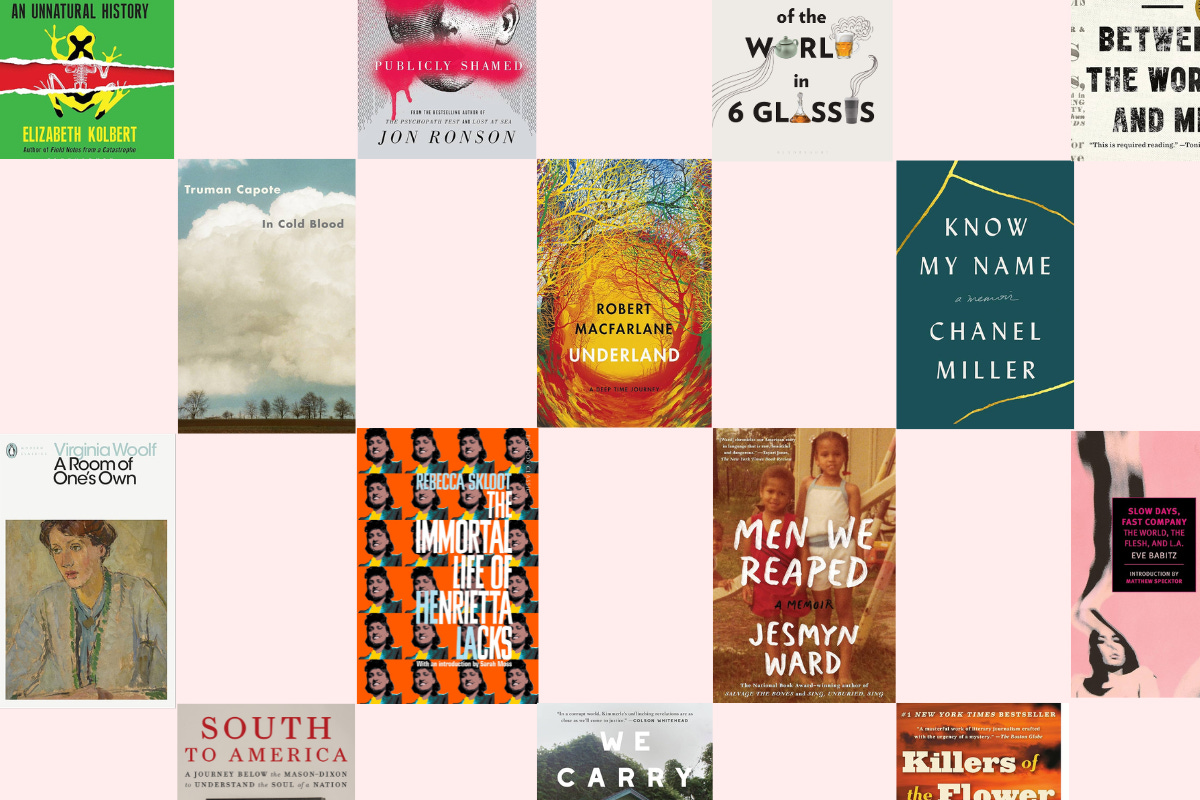
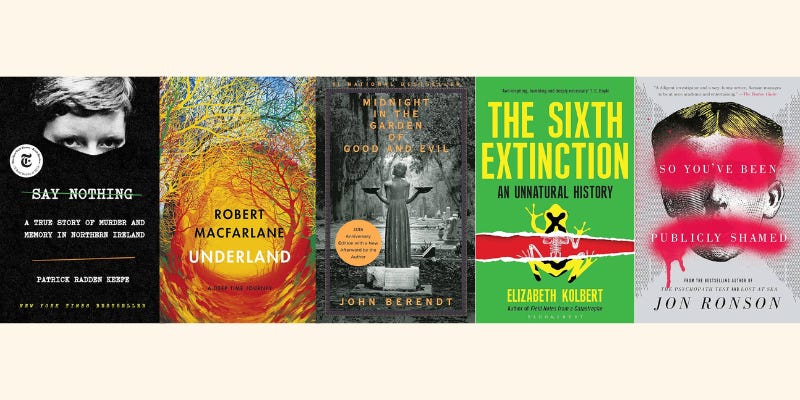
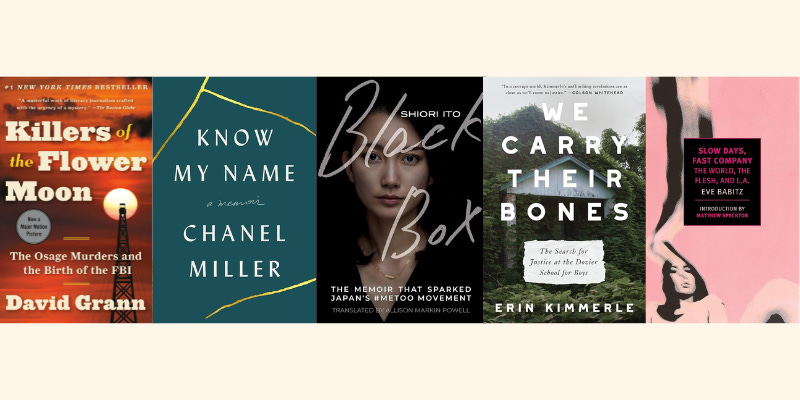
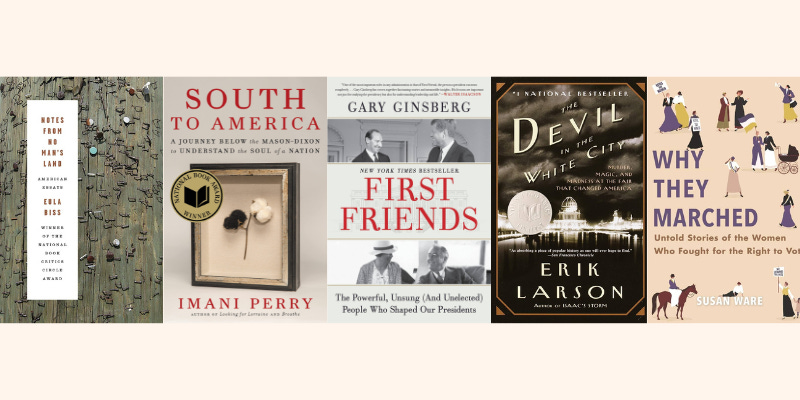
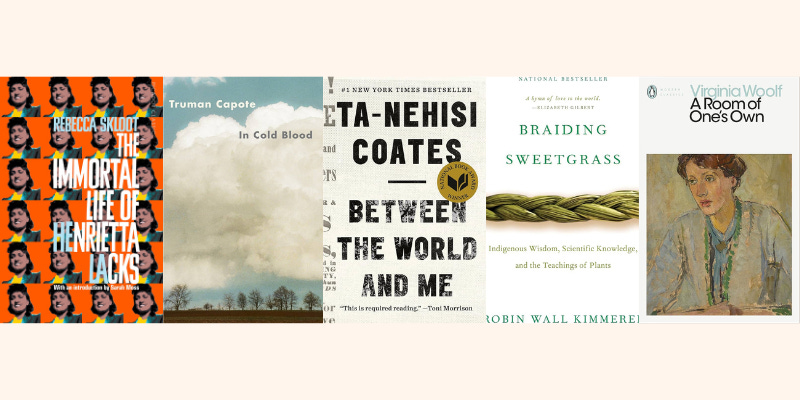
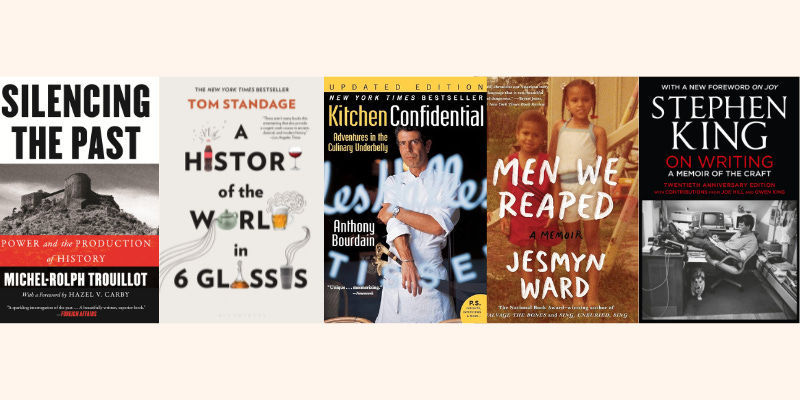

I loved Empire of Pain by Patrick Redden Keefe, it was superb. Read like a thriller, I couldn't put it down. Say Nothing is on my list!
The Warmth of Other Suns is life-changing. Another recommendation: The spirit Catches you and you fall down by Ann Fadiman.